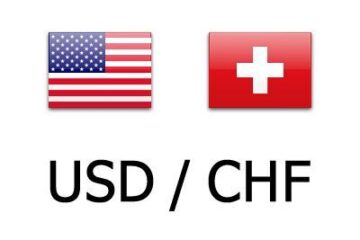The struggling Gen Z trading platform Robinhood now faces a formidable opponent. And the companies have a shareholder in common.
Robinhood (HOOD) – Get Robinhood Markets Inc. Report has something to worry about.
The brokerage house, which wants to democratize finance and attract a new generation of investors, is faced with the slowdown in trading volumes affecting both the cryptocurrency market and the broader financial markets.
The Gen Zers the brokerage wooed appear to have sustained significant losses as cryptocurrency prices plummeted and the stock market slumped on fears of recession and the Federal Reserve raising interest rates to stem inflation at its highest in 40 years.
Robinhood shares have been halved this year and at last check were trading around $8.70. A bit less than a year ago the shares touched $85.
A Strong Competitor
Whether and how much Robinhood’s situation will improve is unclear since new competitors have arrived in its space.
And perhaps the strongest of these rivals has just made its appearance: FTX US, the American subsidiary of cryptocurrency exchange FTX.com, co-founded by the 30-year-old billionaire Sam Bankman-Fried.
FTX US has just announced that it was offering all its users the opportunity to trade stocks on its platform. This service is open to all investors whether they buy or sell cryptocurrencies or not. They will pay a fee for the trades.
“FTX Stocks is now live for US users!” Brett Harrison, president of FTX US, tweeted. “Residents of all 50 states (yes, including NY!) as well as PR and USVI can sign up.”
“Trade hundreds of stocks and ETFs from both the web (https://ftx.us/stocks) and the FTX US Pro mobile app,” he added.
The platform also plans to add options trading in the near term. This comes a few days after Robinhood launched options trading in cash accounts for qualified users.
FTX US also said it wouldn’t accept controversial practices, such as the mechanism of payment for order flow, or profit sharing, that have affected Robinhood.
This practice is unique to the U.S. markets, where orders are allowed to trade away from public markets.
Basically, retail investors, high-frequency traders, and institutional investors trade against each other at the same time in international markets. But in the U.S., retail orders can trade privately with market makers, a structure that is intended to give retail investors better prices.
Robinhood and FTX US Have a Holder in Common
Traditionally, retail investors go to their brokers and say they want to buy or sell such and such a share. This stock is traded on an exchange, where you can buy it for, say, $5.02 or sell it at $4.96. These prices on the stock exchange are called national best bid and offer.
They are set by market makers and high-frequency electronic traders who are in the business of buying from sellers and selling to buyers.
The difference between the purchase price (the offer) and the selling price (the bid) stems from what market makers say is the risks they take by enabling these trades.
Retail brokers do not send their clients’ orders directly to the stock market, where they will face price competition from large institutional investors such as hedge funds. Rather, the brokers pay market makers, who execute the orders and are supposed to get better prices for the clients.
But for the defenders of retail investors, like the investor-advocacy movement #WeTheInvestors (www.we-the-investors.org), there is a duopoly among market makers, which is unfavorable to retail investors.
The U.S Securities and Exchange Commission is looking into this practice.
The looming rivalry between FTX US and Robinhood is interesting as Bankman-Fried recently acquired 7.6% of Robinhood’s capital. Persistent speculation wonders whether the billionaire might try to acquire Robinhood.
“This [Robinhood] was something that I saw as an attractive investment, and there are a lot of areas for the company to grow and innovate going forward,” Bankman-Fried told Axios in May.
He left the door open to possible partnerships with Robinhood.


